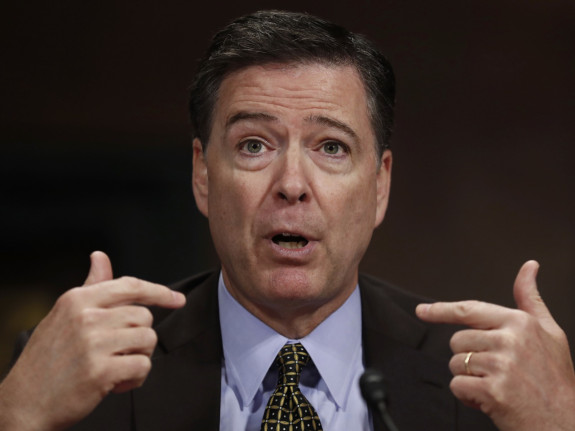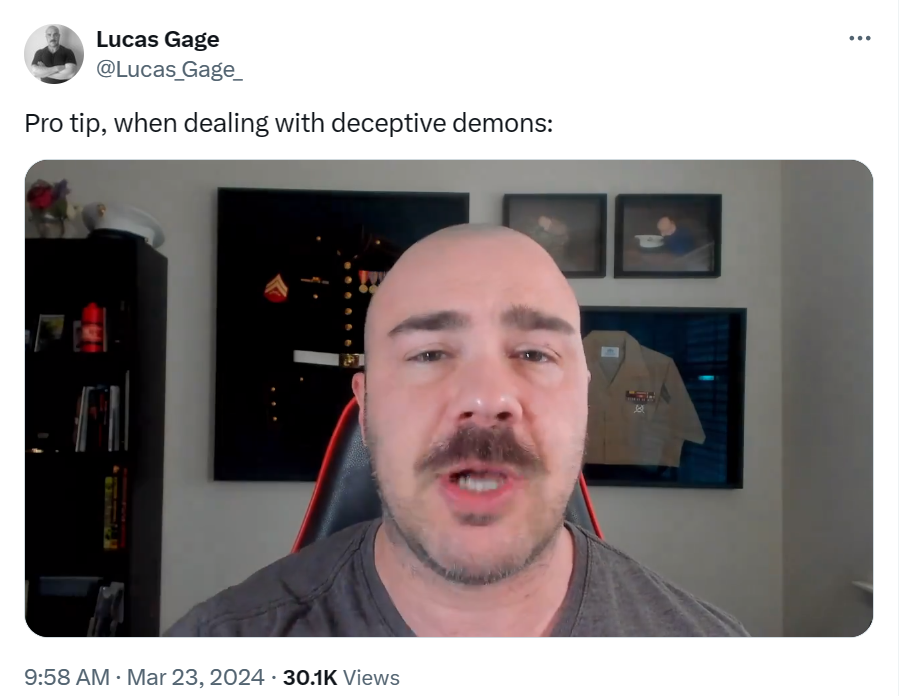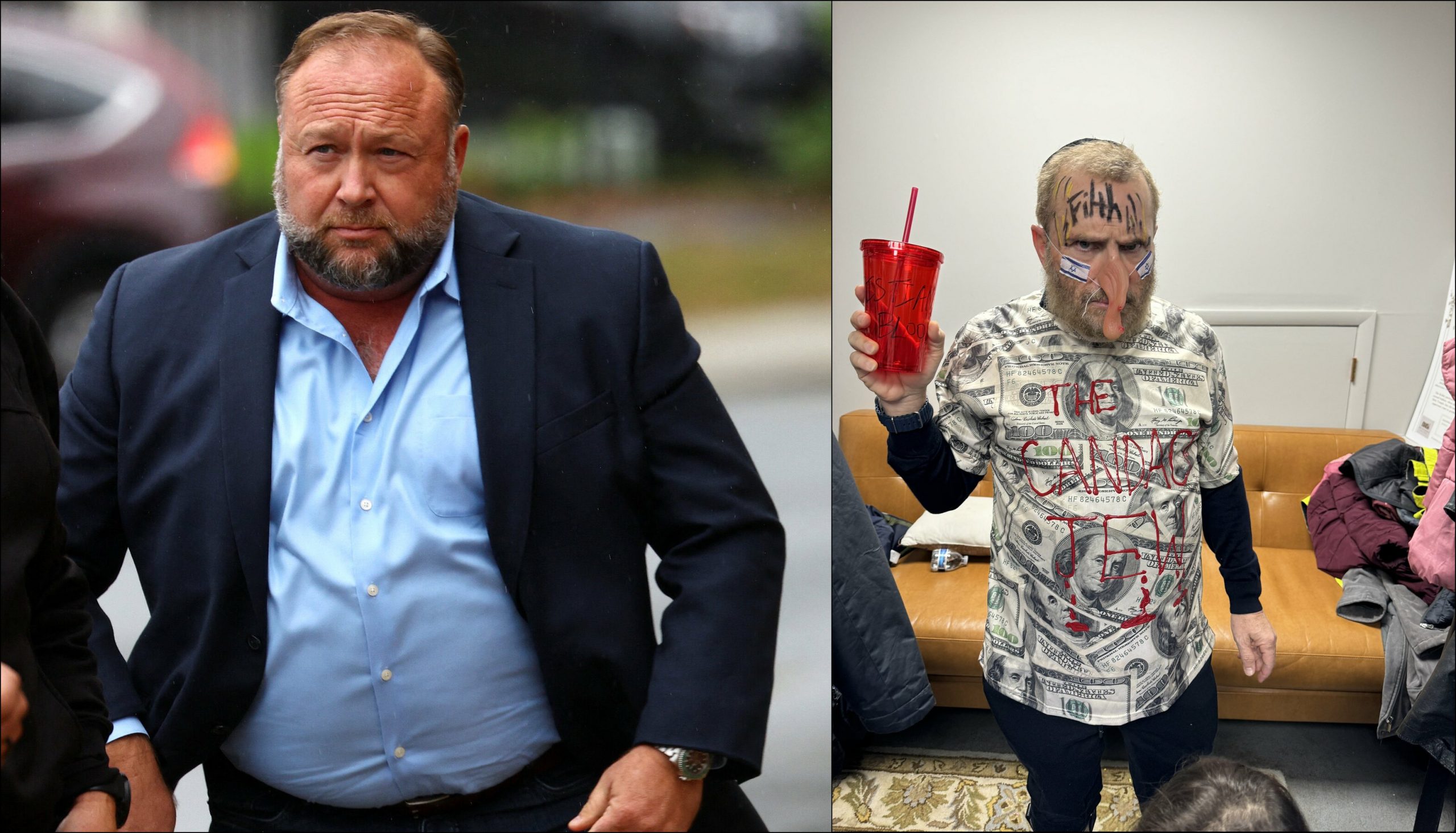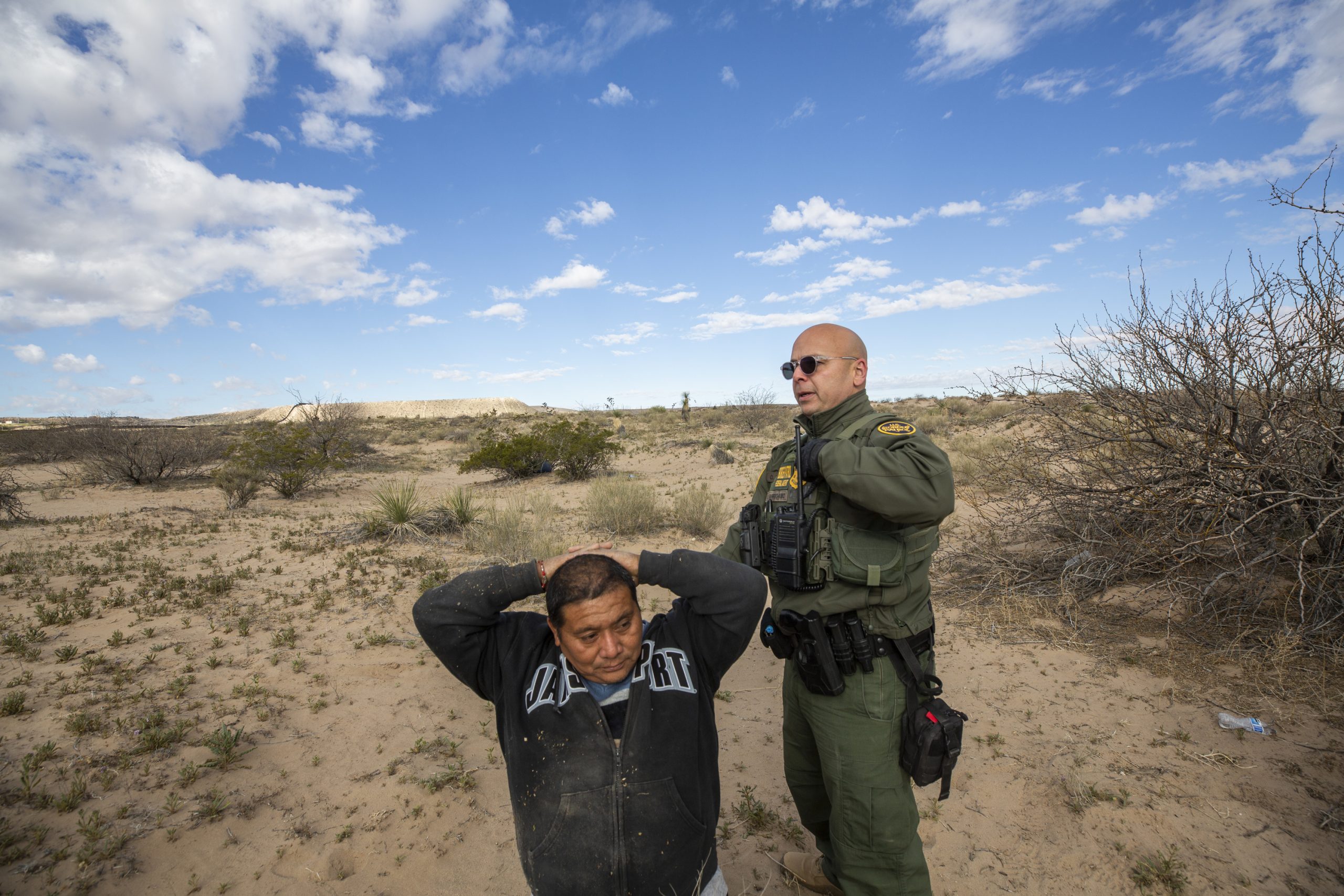Politics
BOMBSHELL: At Least One Of The Four Memos Comey Passed To NYT Contained Classified Info
Published
6 years agoon

(Via Zerohedge)
Back in May, the New York Times scored one of their biggest ‘hits’ to date on Trump when they secured 4 memos drafted by James Comey allegedly summarizing direct conversations with the President (we covered it here: Comey’s Revenge: Leaks Memo To NYT Saying Trump Asked Him To End Flynn Investigation). Among other things, the memos asserted that Trump directly asked Comey to end his investigation of Michael Flynn and to pledge “loyalty” to him.
Of course, as we all know by now, Comey did not pass his memos directly to the New York Times but instead used an intermediary, Columbia University Law School professor Daniel Richman. Now, Richman told CNN in July that none of the memos he received were marked “classified” but, according to a new letter sent to Deputy Attorney General Rod Rosenstein yesterday by Chuck Grassley, that may not have been entirely accurate.
As Grassley notes, 4 of the 7 Comey memos that he reviewed at the FBI were “marked classified at the “SECRET” or “CONFIDENTIAL” levels.” Moreover, since Richman received 4 memos, simple mathematical realities would dictate that at least of them contained material that the FBI now considers classified.
My staff has since reviewed these memoranda in a Sensitive Compartmented Information Facility (SCIF) at the FBI, and I reviewed them in a SCIF at the Office of Senate Security. The FBI insisted that these reviews take place in a SCIF because the majority of the memos are classified. Of the seven memos, four are marked classified at the “SECRET” or “CONFIDENTIAL” levels. Only three did not contain classified information.
According to press reports, Professor Daniel Richman of Columbia Law School stated that Mr. Comey provided him four of the seven memoranda and encouraged him to “detail [Comey’s] memos to the press.” If it’s true that Professor Richman had four of the seven memos, then in light of the fact that four of the seven memos the Committee reviewed are classified, it would appear that at least one memo the former FBI director gave Professor Richman contained classified information. Professor Richman later read a portion of one of the memos to a New York Times reporter.
For those who missed it, here is what Richman told CNN about the classification of the memos he shared with the New York Times:
According to CNN, Daniel Richman, with whom Comey shared at least one memo the contents of which Richman shared with New York Times reporter Michael Schmidt, said President Trump was wrong in accusing Comey of sharing classified information with journalists.
“No memo was given to me that was marked ‘classified,'” Daniel Richman told CNN. “No memo was passed on to the Times.”
Well, not quite: Richman did share the contents of one memo, he said, but “the substance of the memo passed on to the Times was not marked classified and to my knowledge remains unclassified.”
As you may recall, during his June 2017 testimony Comey said he specifically wrote the memos to avoid including classified information to make them “easier to discuss.”
“My thinking was, if I write it in such a way that I don’t include anything that would trigger a classification, that’ll make it easier for us to discuss, within the FBI and the government, and to — to hold on to it in a way that makes it accessible to us,” Comey told senators.
And here, as in the case of Hillary Clinton, is where the problem emerges, because what Comey considered not confidential – just like Clinton – has differed from others’ opinion. In other words, whether he wrote or rewrote the memos to make the leak “easier” – which also begs the question what else was redacted or added to the original content – the confidential information remained…at least in the opinion of someone within the Department of Justice.
Of course, as we all know well by now, mishandling classified information and/or making false statements to the FBI is only a crime if you’re a Republican and/or not part of the Deep State.
Here is the full Chuck Grassley Letter to Rosenstein:
Dear Deputy Attorney General Rosenstein:
This Committee has previously written to the Department of Justice and the Federal Bureau of Investigation about the memorandum that former Director Comey created purportedly memorializing his interactions with President Trump. My staff has since reviewed these memorandum in a Sensitive Compartmented Information Facility (SCIF) at the FBI, and I reviewed them in a SCIF at the Office of Senate Security. The FBI insisted that these reviews take place in a SCIF because the majority of the memos are classified. Of the seven memos, four are marked classified at the “SECRET” or “CONFIDENTIAL” levels. Only three did not contain classified information. FBI personnel refused to answer factual questions during the document reviews, including questions about the chain of custody of the documents I was reviewing, the date that they were marked classified, and who marked them as classified.
According to press reports, Professor Daniel Richman of Columbia Law School stated that Mr. Comey provided him four of the seven memoranda and encouraged him to “detail [Comey’s] memos to the press.” If it’s true that Professor Richman had four of the seven memos, then in light of the fact that four of the seven memos the Committee reviewed are classified, it would appear that at least one memo the former FBI director gave Professor Richman contained classified information. Professor Richman later read a portion of one of the memos to a New York Times reporter.
When the Committee contacted Professor Richman seeking copies of the memos Mr. Comey had provided him, he refused to provide them, did not say how many he had received from Mr. Comey, and refused to say whether he retained copies. It is unclear whether any of the memos reviewed by the Committee were retrieved from Professor Richman. The Committee has accordingly not determined which of the seven memos Mr. Comey provided him. Professor Richman did tell Committee investigators that he was working with the Special Counsel’s Office, and he reportedly told the media that he had turned over to the FBI copies of the memos he’d received from Mr. Comey. If true, the Justice Department should know which memos were provided and be able to share that information with the Committee.
In order for the Committee to further assess this situation, please respond to the following in writing by no later than January 17, 2018:
Has the Justice Department or FBI in fact determined that any of the memoranda Mr. Comey sent Professor Richman contained classified information? If so, what steps were taken to retrieve and safeguard the information?
Which of the seven memoranda the FBI made available for the Committee’s review did Mr. Comey give to Professor Richman?
When did Mr. Comey give Professor Richman the memoranda?
At the time that Professor Richman received the memoranda, were any marked as classified?
At the time that Professor Richman received the memoranda, did any contain classified information, regardless of markings?
Please explain the method by which Mr. Comey transmitted the memoranda to Professor Richman. If the transmittal was electronic:
Please provide the account information that Mr. Comey and Mr. Richman used.
Please describe what steps the FBI has taken to recover all copies of any classified memorandum that might reside on computers, servers, or at other locations.
Have you initiated an investigation into the matter of whether Mr. Comey improperly disclosed classified information by providing these memoranda to Professor Richman? If so, what is the status of the investigation? If not, why not?
Has there been any review of whether the disclosure of the memoranda by Mr. Comey was otherwise improper, such as whether it violated his employment agreement or any Department rule or policy? If so, what is the status of the review?
If not, why not?
When did the FBI mark the four memoranda as classified, and who made the classification decision?
As noted above, it has been reported that Professor Richman returned the memoranda to the FBI. If so, on what date did this occur?
Did anyone from the FBI or Special Counsel’s Office discuss with Professor Richman this Committee’s request for copies of the memos? If so, please provide all records related to any such communications.
Does Professor Richman still have possession of any of the memorandum or copies?
Thank you for your prompt attention to this matter. Please contact Patrick Davis of my Committee staff at (202) 224-5225 if you have any questions.
Military
Lucas Gage Returns to X After Exposing Palestine Atrocities & Ban Over Alleged Harassment
Published
4 weeks agoon
March 24, 2024
In today’s digital age, social media platforms serve as vital tools for raising awareness and advocating for causes. However, they also present challenges such as harassment and censorship. Recently, actor and activist Lucas Gage faced these challenges head-on when his X account was suspended for several months following harassment from certain groups unhappy with his efforts to expose war atrocities in Palestine. Now, after a prolonged absence, Gage has returned to X, ready to resume his important work of shedding light on crucial issues.
Pro tip, when dealing with deceptive demons: pic.twitter.com/QEh5D9QyNS
— Lucas Gage (@Lucas_Gage_) March 23, 2024
Lucas Gage, known for his roles in various television shows and films, has also been vocal about social justice issues, particularly regarding the Palestinian cause. His advocacy drew the ire of individuals and groups who disagreed with his stance. Gage utilized his platform on X to spotlight the human rights violations and war atrocities occurring in Palestine, which led to backlash from some pro-Israeli factions.
The backlash against Gage escalated into harassment, predominantly from individuals identifying themselves as Zionists. He faced a barrage of abusive messages, threats, and attempts to undermine his activism. Despite his efforts to report and block the harassers, the situation persisted, taking a toll on Gage’s mental well-being and sense of safety.
In a controversial decision, X suspended Gage’s account, citing violations of its community guidelines. Many criticized X for what they perceived as a failure to address harassment effectively, especially given the circumstances surrounding Gage’s case. The ban sparked debates about freedom of expression, censorship, and the responsibilities of social media platforms in safeguarding users from harassment and abuse.
After a hiatus spanning several months, Lucas Gage has made his comeback to X. His return has been met with an outpouring of support from fellow activists, fans, and individuals concerned about censorship and human rights. Gage expressed gratitude for the overwhelming solidarity he received during his absence and reiterated his dedication to advocating for justice and raising awareness about the plight of the Palestinian people.
The incident involving Lucas Gage underscores the significance of advocacy and the hurdles activists encounter, especially when addressing contentious issues. It also highlights the complexities of navigating social media platforms where differing viewpoints often clash, sometimes resulting in hostility and censorship.
As Gage resumes his activism on X, it is imperative to continue discussions about online harassment, censorship, and the necessity for improved mechanisms to shield users from abuse. Social media companies must reevaluate their policies and enforcement strategies to ensure that platforms remain spaces for constructive dialogue and activism, rather than avenues for harassment and stifling dissenting voices.
Lucas Gage’s return to X serves as a testament to the resilience of individuals committed to social justice causes despite facing obstacles and adversity. His experience sheds light on broader issues surrounding online harassment and censorship, prompting important conversations about the role of social media platforms in shaping public discourse. As Gage continues his advocacy, his story serves as inspiration for others to speak out against injustice and strive for positive change.
Culture
Rabbi Shmuley Having ‘Nervous Breakdown’ says Alex Jones
Published
4 weeks agoon
March 24, 2024
In the whirlwind of social media controversies, few can match the intensity and unpredictability of Alex Jones. Known for his provocative statements and unyielding conspiracy theories, Jones recently took to Twitter to express his disdain for Rabbi Shmuley Boteach’s Purim costume choice.
You have clearly had a nervous breakdown. You go around starting fights will people and then flip out when they respond. For the sake of your family seek help. https://t.co/8NfTv0sS0k
— Alex Jones (@RealAlexJones) March 24, 2024
In a scathing tweet, Jones condemned Rabbi Shmuley’s attire and behavior, accusing him of having a “nervous breakdown.” The rabbi had donned a costume portraying what he termed a “Candace Owens Jew,” accompanied by a bizarre ensemble featuring references to money and a provocative assertion about Jewish identity.
“For Purim I’ve dressed up as a Candace Owens Jew,” Rabbi Shmuley wrote, adding a string of controversial remarks about Jewish stereotypes and dual loyalties. The costume, seemingly intended as a satirical commentary, sparked outrage and criticism from many quarters.
Jones, never one to shy away from confrontation, seized the opportunity to denounce Rabbi Shmuley’s actions. “You go around starting fights with people and then flip out when they respond,” Jones tweeted. He urged the rabbi to seek help for the sake of his family, implying that Rabbi Shmuley’s behavior was symptomatic of a deeper issue.
The exchange between Jones and Rabbi Shmuley highlights the complexities of social media and the power of provocative speech. Both figures are no strangers to controversy, with Jones notorious for his conspiracy-laden rants and Rabbi Shmuley often courting controversy with his outspoken views on various issues.
Purim, a Jewish holiday known for its revelry and merrymaking, is traditionally marked by costume parties and playful satire. However, Rabbi Shmuley’s choice of attire crossed a line for many, tapping into sensitive issues of anti-Semitism and racial stereotypes.
By dressing as a caricatured version of a “Candace Owens Jew,” Rabbi Shmuley waded into dangerous territory, perpetuating harmful stereotypes and reinforcing negative perceptions of Jewish people. His attempt at satire fell flat for many, instead sparking condemnation and outrage.
In response, Alex Jones delivered a blistering rebuke, calling out Rabbi Shmuley’s behavior and urging him to seek help. While Jones himself is no stranger to controversy, his criticism of Rabbi Shmuley’s costume choice underscores the seriousness of the issue at hand.
In an era where social media amplifies voices and magnifies controversies, individuals must exercise caution and responsibility in their online interactions. What may seem like harmless satire to some can perpetuate harmful stereotypes and fuel division.
As the dust settles on this latest social media skirmish, it serves as a reminder of the power of words and the importance of thoughtful discourse. In a world already fraught with tensions and divisions, it is incumbent upon all of us to strive for understanding and empathy, even in the midst of disagreement.

In the heart of Texas, amidst the sweltering heat and the vast expanse of rugged terrain, a battle was being waged—a battle not fought with guns and swords, but with words and legal maneuvers. It was a clash between the Lone Star State and the might of the federal government, with the fate of immigration law hanging in the balance.
Ken Paxton, the Attorney General of Texas, stood at the forefront of this struggle. With unwavering determination and a deep sense of duty, he had taken up the mantle to defend Texas and its sovereignty against what he saw as overreach from the Biden Administration.
Just a few minutes ago, he had sent a tweet echoing across the digital landscape, announcing a monumental victory: “🚨🚨 HUGE WIN: Texas has defeated the Biden Administration’s and ACLU’s emergency motions at the Supreme Court. Our immigration law, SB 4, is now in effect.”
The news reverberated through the state like a thunderclap, igniting a spark of hope in the hearts of many Texans who had felt their voices drowned out by the clamor of national politics.
Among those who felt the weight of this victory was Maria Sanchez, a young immigrant who had come to Texas in search of a better life. For years, she had lived in the shadows, fearing the consequences of being discovered by authorities. But now, with SB 4 in effect, she felt a glimmer of hope that perhaps she could finally step out into the light without fear.
On the other side of the divide stood federal agents, tasked with enforcing the laws of the land as decreed by the Biden Administration. They watched with frustration as their efforts were thwarted by legal challenges and political maneuvering.
But for Ken Paxton, this victory was not just about winning in court—it was about standing up for what he believed was right. It was about defending the values and principles that he held dear, even in the face of adversity.
“As always, it’s my honor to defend Texas and its sovereignty, and to lead us to victory in court,” he declared, his words resounding with conviction.
The battle may have been won for now, but the war was far from over. In the days and weeks to come, the struggle between state and federal authority would continue to unfold, shaping the destiny of not just Texas, but the entire nation.
But for now, amidst the heat of the Lone Star State, a moment of triumph had been achieved—a testament to the resilience and determination of those who dared to stand up and fight for what they believed in.

Cracking the OddPath Code: Iowa Gymnastics Under Review

Lucas Gage Returns to X After Exposing Palestine Atrocities & Ban Over Alleged Harassment

Rabbi Shmuley Having ‘Nervous Breakdown’ says Alex Jones

Unveiling Oddpath: Mayor Tiffany O’Donnell and Amanda Goodman Have Failed Cedar Rapids, Iowa

AG Ken Paxton: “SB 4, is Now In Effect”

Unveiling Oddpath: Mayor Tiffany O’Donnell and Amanda Goodman Have Failed Cedar Rapids, Iowa

Cracking the OddPath Code: Iowa Gymnastics Under Review

Rabbi Shmuley Having ‘Nervous Breakdown’ says Alex Jones





